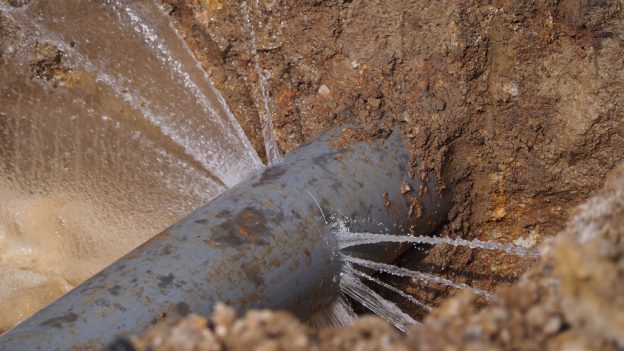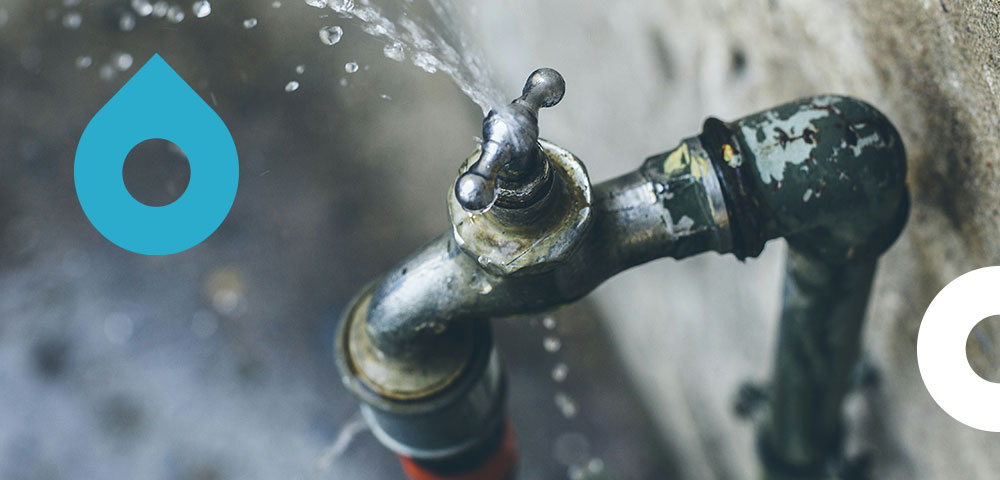The Top 5 Common Origins of Water Leaks
The Top 5 Common Origins of Water Leaks
Blog Article
We have stumbled upon this article involving Where to Find Water Leaks below on the web and accepted it made sense to talk about it with you in this article.

"Be cautious of little costs. A little leak will certainly sink a wonderful ship." - Benjamin Franklin.
He could not have been more ideal because water leaks in our houses lead to a waste of sources, boosting our water bills. Although this increase might seem negligible initially, it can lead to considerable expenditures that can break your financial institution. Other than a boost in costs, water leakages likewise create unwanted organic development, structural damage, and even electric risks.
Finding out if you have a water leak isn't constantly easy due to being unable to see a lot of the pipework in your house. If you have had an increase in your water bills lately, observed water discolorations on wall surfaces and ceilings, smelt lousy smell, etc. You may intend to take into consideration requesting plumbing services to get it looked into.
There are a number of root causes of water leaks, and we have assembled the typical factors below. Check to see if you have had associated concerns in your house recently.
Clogged drains
Food particles, dust, and grease can cause clogged drains and obstruct the passage of water in and out of your sink. If undealt with, boosted stress within the rain gutters can cause an overflow and also end up cracking or breaking pipelines. To prevent blocked drains pipes in your house, we suggest you to avoid pouring particles down the drain and also normal cleansing of sinks.
High water pressure
You discovered your residence water stress is more than normal but after that, why should you care? It's out of your control.
It would be best if you cared due to the fact that your average water pressure need to be 60 Psi (per square inch) and also although your home's plumbing system is developed to withstand 80 Psi. A boost in water pressure can place a pressure on your house pipelines and cause splits, or even worse, burst pipelines. Get in touch with a specialist about controling it if you ever before observe that your house water stress is greater than typical.
Deterioration
As your pipework gets older, it gets weaker and also a lot more at risk to rust after the frequent passage of water with them, which can eat away at pipelines as well as trigger cracks. A visible indicator of rust in your house plumbing system is staining and although this could be tough to discover due to the majority of pipes hidden away. Once they are old to make sure an audio plumbing system, we encourage doing a constant check-up every few years and alter pipes
Compromised pipe joints
Pipeline joints are the parts of our plumbing system where the pipes attach. It is vital to note that also though pipelines are developed to hold up against pressure and last for a while, they weren't created to last forever; for that reason, they would wear away over time. A common indicator of damaged pipe joints is too much noise from taps.
Busted seals
One more cause of water leakages in houses is damaged seals of house appliances that make use of water, e.g., a dishwasher. When such devices are set up, seals are set up around water adapters for simple flow of water via the maker. For this reason, a damaged seal can cause leakage of water when in use.
With little or no knowledge of plumbing, recognizing your home's plumbing system enough to fix some of these issues (without repercussion) can be a hassle. Contact plumbing professionals in Pittsburgh, Providence, Rochester, and environ today, and they'll make those concerns disappear.
He could not have actually been much more right due to the fact that water leakages in our homes result in a waste of sources, boosting our water costs. If you have had an increase in your water costs lately, noticed water spots on walls as well as ceilings, smelt poor odor, etc. A boost in water stress can place a stress on your home pipelines and lead to fractures, or even worse, ruptured pipelines. One more reason of water leaks in homes is damaged seals of residence appliances that use water, e.g., a dishwasher. When such devices are installed, seals are installed around water adapters for very easy flow of water through the machine.
5 TIPS IN DETECTING A WATER LEAK IN YOUR HOUSE
Water leaks can be hard to find in your home, yet they can be so common. We rely on water every day in our home, which is why a leak can cause big problems. By detecting them early, you can save money and further damage, getting the problem fixed as soon as possible. Here are 5 tips to help you detect a water leak in your home, so you can contact a plumber straight away and get the issue sorted.
Check your water meter
Many people underestimate the value of the water meter in their home. It can be one of the best ways to tell if you have a leak early on, so you can get on top of it before issues start arising. Start by turning off all the water in your home: taps, washing machine, dishwasher, etc. Now take a look at the meter – if it’s still changing with everything turned off, it’s likely you have a fast-flowing leak that you need to get on top of straight away. If nothing changes, then leave your meter for an hour or two and come back to it. Did it change in this time? It’s likely you have a slower leak, which isn’t as urgent but still handy to get fixed so it doesn’t become a bigger problem.
Keep an eye on your bill
Another good way to detect a leak in your home is by keeping an eye on your water bill. It helps if you have a past bill from the same period of time. You can compare like for like and determine whether your water usage has increased significantly. If it has, there may be a leak in your system that you haven’t picked up before. A professional plumber can check through all of your pipes and determine where it is coming from.
Look for damage
If you have a leak inside your home, you will notice damage over time. Take a look at your showers and bathtubs and note whether any of the tiles surrounding the area seem to be discoloured or damaged in any way. There may be water stains, mould or peeling material that has resulted from a build up of moisture over time. Make sure you take a look under sinks at the back of cupboards that don’t get accessed regularly. This is where damage can go unnoticed and build up over periods of time.

As a keen reader about Common Causes of Water Leaks in the Home, I assumed sharing that post was a good idea. Loved our piece? Please share it. Help others locate it. Bless you for your time. Come back soon.
Call for unmatched plumbing expertise. Report this page